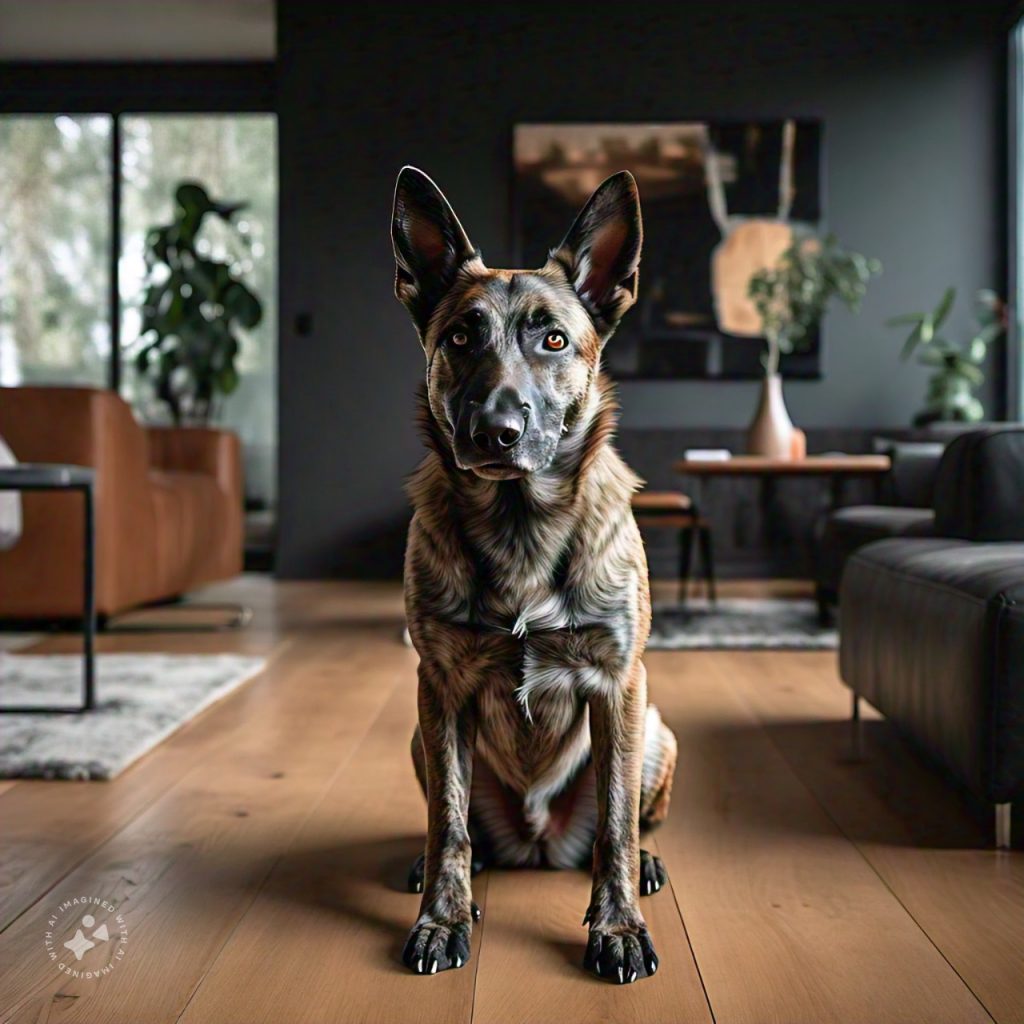The Dutch Shepherd is a remarkable dog breed celebrated for its versatility, intelligence, and loyalty. Originating in the Netherlands, this breed has long been a trusted companion for farmers, shepherds, and modern-day dog enthusiasts alike. In this article, we delve into the Dutch Shepherd’s history, characteristics, training needs, and health considerations, offering a complete guide for potential owners and admirers of this incredible breed.
History and Origin
The Dutch Shepherd, or Hollandse Herder, was first developed in the 19th century in the rural regions of the Netherlands. Farmers needed a robust and adaptable dog to assist with herding sheep, protecting livestock, and performing various farm tasks. Unlike other shepherd breeds, the Dutch Shepherd has remained relatively unchanged, retaining its natural working instincts and rugged build.
The breed was initially categorized into three coat types: short-haired, long-haired, and rough-haired. Though closely related to the Belgian Shepherd and German Shepherd, the Dutch Shepherd is distinguished by its brindle coat pattern and adaptability.
During World War II, the breed faced near extinction due to resource scarcity and urbanization. Dedicated breeding programs helped restore its population, and today, the Dutch Shepherd is valued worldwide as a working dog and companion.
Physical Characteristics
- Size and Build: Medium-sized, muscular, and well-proportioned, the Dutch Shepherd typically weighs 50–70 pounds and stands 21–24 inches at the shoulder.
- Coat Types:
- Short-haired: Dense and weather-resistant, ideal for working in various climates.
- Long-haired: Straight and smooth, offering a distinctive look but requiring more grooming.
- Rough-haired: Coarse and wiry, providing excellent protection against harsh weather.
- Coloration: Brindle patterns dominate, with shades of gold or silver. A dark mask and upright ears add to the breed’s striking appearance.
- Eyes: Almond-shaped and expressive, usually dark brown.
Temperament and Personality
The Dutch Shepherd is renowned for its intelligence, trainability, and loyalty. These dogs form strong bonds with their families and are often protective without being overly aggressive. Key personality traits include:
- Intelligence: Dutch Shepherds excel at problem-solving, making them ideal for tasks like search and rescue, agility, and obedience training.
- Energy: Highly active, this breed thrives in homes with plenty of physical and mental stimulation.
- Adaptability: While bred for herding, Dutch Shepherds adapt well to urban environments if their exercise needs are met.
- Affection: They are family-oriented and get along well with children and other pets when socialized early.
Training and Exercise
Due to their high energy and intelligence, Dutch Shepherds require consistent training and exercise. Here’s how to meet their needs:
- Basic Training: Start with basic commands like sit, stay, and come. Positive reinforcement methods work best for this eager-to-please breed.
- Advanced Training: Dutch Shepherds excel in agility, obedience, and protection sports. Their quick learning ability makes them stand out in competitive settings.
- Exercise Requirements: Aim for at least 1–2 hours of physical activity daily. Activities like running, hiking, or playing fetch are excellent for keeping them engaged.
- Mental Stimulation: Puzzle toys, obedience games, and scent work can help keep their sharp minds occupied.
Health and Lifespan
Dutch Shepherds are generally healthy dogs with a lifespan of 11–14 years. However, like all breeds, they may be prone to specific health conditions:
- Hip Dysplasia: A common issue in active breeds. Regular check-ups and maintaining a healthy weight can mitigate risks.
- Allergies: Some Dutch Shepherds may experience skin sensitivities, especially the rough-haired variety.
- Progressive Retinal Atrophy (PRA): A genetic condition affecting eyesight. Responsible breeders test for such conditions to reduce occurrence.
Routine vet visits, a balanced diet, and regular exercise are key to keeping your Dutch Shepherd healthy.
Grooming and Maintenance
- Coat Care: Grooming needs vary by coat type:
- Short-haired: Weekly brushing to remove loose hairs.
- Long-haired: More frequent brushing to prevent tangles and mats.
- Rough-haired: Occasional hand-stripping to maintain coat texture.
- Bathing: Only when necessary, as their coats naturally repel dirt.
- Nails and Teeth: Trim nails regularly and brush teeth to prevent dental issues.
Is the Dutch Shepherd Right for You?
The Dutch Shepherd is best suited for active families, individuals, or working environments. They require dedicated owners who can meet their physical and mental needs. Before committing, consider:
- Space: While adaptable, they thrive in homes with access to outdoor spaces.
- Time: These dogs demand attention, exercise, and training.
- Experience: While not overly challenging, first-time dog owners should be prepared to invest in proper training and socialization.
Conclusion
The Dutch Shepherd is a remarkable breed combining beauty, intelligence, and versatility. Whether you’re looking for a loyal family companion or an agile working dog, this breed has much to offer. With the right care and training, the Dutch Shepherd can be a rewarding addition to any home.
For potential owners, ensure you seek reputable breeders or consider adoption through rescue organizations dedicated to this breed. By doing so, you’ll gain a loyal and hardworking friend for years to come.
FAQs
1. Are Dutch Shepherds good with children?
Yes, they are affectionate and protective but should be supervised around young children to prevent accidental injuries during play.
2. How do Dutch Shepherds compare to German Shepherds?
While both breeds are intelligent and versatile, Dutch Shepherds are generally less prone to overbreeding-related health issues and are known for their unique brindle coat.
3. Can Dutch Shepherds live in apartments?
Yes, if their exercise and mental stimulation needs are met daily.
This comprehensive guide ensures you have all the information needed to appreciate and care for the Dutch Shepherd—a breed as loyal as it is intelligent.

